
Browse an alphabetical list of survivors’ oral histories. These interviews describe firsthand accounts and personal experiences during the Holocaust and World War II.
<< Previous | Displaying results 231-240 of 572 for "Oral History" | Next >>
In 1938-39, Hungary annexed the area of Czechoslovakia in which Helen lived. After Germany occupied Hungary in 1944, Helen and her family were deported to the Uzhgorod ghetto. As Jews, they were soon transferred to various camps, where much of the family perished. Although at times Helen was too weak to walk, she and her older sister survived Auschwitz, forced labor at a camp munitions factory, and Bergen-Belsen.
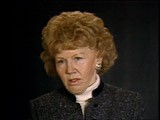
Volosianka was annexed by Hungary in 1939 and occupied by the Germans in 1944. Helen was about 13 when she and her family were deported to the Uzhgorod ghetto. They were then deported to various camps. Helen and her older sister survived Auschwitz, forced labor at a camp munitions factory, and Bergen-Belsen. When Helen was too weak to move, her sister would support her during roll call and drag her to work, knowing that labor was the only chance for survival.
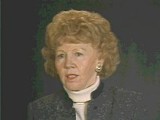
Henny was born into an upper-middle-class Jewish family in Kovno, Lithuania. She and her brother attended private schools. In June 1940 the Soviets occupied Lithuania, but little seemed to change until the German invasion in June 1941. The Germans sealed off a ghetto in Kovno in August 1941. Henny and her family were forced to move into the ghetto. Henny married in the ghetto in November 1943; her dowry was a pound of sugar. She survived several roundups during which some of her friends and family were…
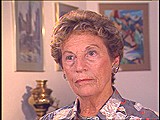
Henny was born into an upper-middle-class Jewish family in Kovno, Lithuania. She and her brother attended private schools. In June 1940 the Soviets occupied Lithuania, but little seemed to change until the German invasion in June 1941. The Germans sealed off a ghetto in Kovno in August 1941. Henny and her family were forced to move into the ghetto. Henny married in the ghetto in November 1943; her dowry was a pound of sugar. She survived several roundups during which some of her friends and family were…
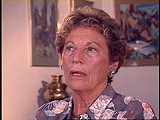
Henny was born into an upper-middle-class Jewish family in Kovno, Lithuania. She and her brother attended private schools. In June 1940 the Soviets occupied Lithuania, but little seemed to change until the German invasion in June 1941. The Germans sealed off a ghetto in Kovno in August 1941. Henny and her family were forced to move into the ghetto. Henny married in the ghetto in November 1943; her dowry was a pound of sugar. She survived several roundups during which some of her friends and family were…
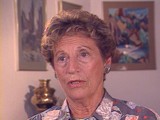
Henny was born into an upper-middle-class Jewish family in Kovno, Lithuania. She and her brother attended private schools. In June 1940 the Soviets occupied Lithuania, but little seemed to change until the German invasion in June 1941. The Germans sealed off a ghetto in Kovno in August 1941. Henny and her family were forced to move into the ghetto. Henny married in the ghetto in November 1943; her dowry was a pound of sugar. She survived several roundups during which some of her friends and family were…
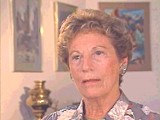
Henny was born into an upper-middle-class Jewish family in Kovno, Lithuania. She and her brother attended private schools. In June 1940 the Soviets occupied Lithuania, but little seemed to change until the German invasion in June 1941. The Germans sealed off a ghetto in Kovno in August 1941. Henny and her family were forced to move into the ghetto. Henny married in the ghetto in November 1943; her dowry was a pound of sugar. She survived several roundups during which some of her friends and family were…
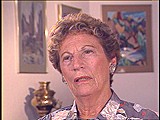
Henry received a Doctor of Law (J.D.) degree from the University of Berlin in 1937. Sponsored by the rabbi of the Baltimore Hebrew congregation, Henry immigrated to the United States in the same year. In 1945, the Office of Strategic Services (OSS) assigned him to prepare pre-trial briefs for the International Military Tribunal held in Nuremberg, Germany. He interrogated a number of witnesses and defendants. After the war, he held various diplomatic posts.
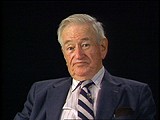
Herbert graduated from Yale in 1938. He became a rabbi and worked very closely with American Jewish leader Stephen S. Wise. He became a chaplain in the US Army during World War II. In the spring of 1945, he went to Europe. When the war ended, he was recruited by David Ben-Gurion into the Aliyah Bet ("illegal" immigration) operation of the Hagana. This involved smuggling Jews from eastern Europe through Germany to Palestine. He worked with displaced persons, mainly in Berlin and the American zone of…
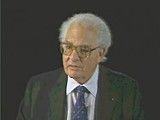
Herbert Oppenheimer was born on January 4, 1926, in Berlin, Germany. He lived with foster parents, who were Seventh-Day Adventists. While living with his foster parents, he had to join Hitler Youth along with everyone else in his class at school. During this time, he learned that he was Jewish. The school consequently expelled him from the Hitler Youth. All prospective members of the Hitler Youth had to be "Aryans." He had to leave his foster parents in April 1939, and lived in an orphanage run by the…
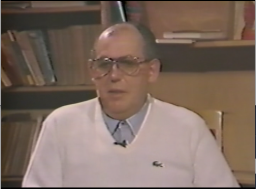
We would like to thank Crown Family Philanthropies, Abe and Ida Cooper Foundation, the Claims Conference, EVZ, and BMF for supporting the ongoing work to create content and resources for the Holocaust Encyclopedia. View the list of donor acknowledgement.